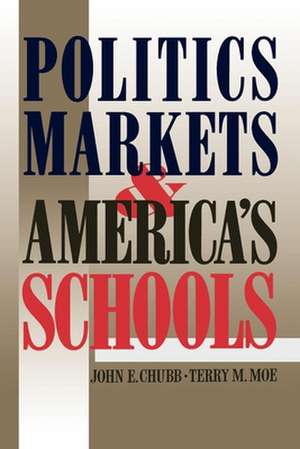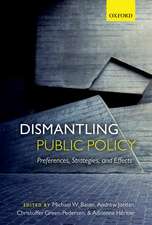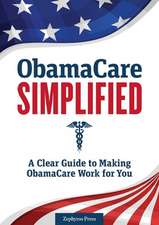Politics, Markets, and America's Schools
Autor John E. Chubb, Terry M. Moeen Limba Engleză Paperback – iun 1990
During the 1980s, widespread dissatisfaction with America's schools gave rise to a powerful movement for educational change, and the nation's political institutions responded with aggressive reforms. Chubb and Moe argue that these reforms are destined to fail because they do not get to the root of the problem. The fundamental causes of poor academic performance, they claim, are not to be found in the schools, but rather in the institutions of direct democratic control by which the schools have traditionally been governed. Reformers fail to solve the problem-when the institutions ARE the problem. The authors recommend a new system of public education, built around parent-student choice and school competition, that would promote school autonomy—thus providing a firm foundation for genuine school improvement and superior student achievement.
Preț: 235.54 lei
Nou
Puncte Express: 353
Preț estimativ în valută:
45.07€ • 47.15$ • 37.44£
45.07€ • 47.15$ • 37.44£
Carte tipărită la comandă
Livrare economică 02-16 aprilie
Preluare comenzi: 021 569.72.76
Specificații
ISBN-13: 9780815714095
ISBN-10: 0815714092
Pagini: 336
Ilustrații: black & white illustrations
Dimensiuni: 152 x 229 x 21 mm
Greutate: 0.51 kg
Ediția:New.
Editura: Brookings Institution Press
Colecția Brookings Institution Press
ISBN-10: 0815714092
Pagini: 336
Ilustrații: black & white illustrations
Dimensiuni: 152 x 229 x 21 mm
Greutate: 0.51 kg
Ediția:New.
Editura: Brookings Institution Press
Colecția Brookings Institution Press
Notă biografică
John E. Chubb is a founding partner of Edison Schools and a nonresident senior fellow in Governance Studies at the Brookings Institution.
Terry M. Moe is professor of political science at Stanford University and senior fellow at the Hoover Institution. He has written extensively on American education and American political institutions.
Terry M. Moe is professor of political science at Stanford University and senior fellow at the Hoover Institution. He has written extensively on American education and American political institutions.
Descriere
During the 1980s, widespread dissatisfaction with America's schools gave rise to a powerful movement for educational change, and the nation's political institutions responded with aggressive reforms. Chubb and Moe argue that these reforms are destined to fail because they do not get to the root of the problem. The fundamental causes of poor academic performance, they claim, are not to be found in the schools, but rather in the institutions of direct democratic control by which the schools have traditionally been governed. Reformers fail to solve the problem-when the institutions ARE the problem. The authors recommend a new system of public education, built around parent-student choice and school competition, that would promote school autonomy—thus providing a firm foundation for genuine school improvement and superior student achievement.















